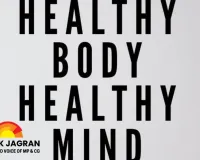Let There Be Light: How a Morning Gaze at the Sky Can Transform Your Sleep and Energy
Digital Desk

Forget the second cup of coffee. Neuroscience points to a free, daily ritual that resets your body's internal clock for deeper rest and sharper days.
There’s a potent, zero-cost tool for better health hanging in the sky every morning, and most of us walk right past it on our way to the coffee machine. A growing chorus of neuroscientists and health experts is championing a simple practice: spending the first ten to thirty minutes after waking immersed in the light of the morning sky.
This isn't about getting a tan; it's about sending a vital signal to the brain's master clock. The specific quality of morning light, rich in blue wavelengths, is uniquely designed to calibrate our circadian rhythms. "The cells in our eyes are exquisitely tuned to this light," explains Dr. Anya Sharma, a chronobiologist. "It travels directly to the brain's control center, shutting off the production of the sleep hormone melatonin and triggering a cortisol response that promotes alertness and focus."
The benefits of this daily reset extend far beyond a simple morning pick-me-up. By anchoring our biology to the natural solar cycle, we foster improved mood, more stable metabolism, and crucially, more restorative sleep at night. When the brain gets a clear "start of day" signal, it can accurately schedule the release of melatonin roughly fourteen hours later, making sleep onset easier and the sleep itself deeper.
The protocol is simple but requires a touch of consistency. Step outside—without sunglasses and preferably without a window pane—and simply look in the direction of the sky. Even an overcast day provides enough of the crucial light spectrum. The goal is gentle exposure, not staring directly at the sun.
For office workers, this could mean a brief walk before settling at a desk. For those in sun-scarce climates, a specialized light therapy lamp can serve as a substitute. In our modern world of constant artificial light, this ancient habit offers a powerful, preventative countermeasure, proving that some of the best medicine doesn't come in a bottle, but from the dawn itself.

.jpg)









